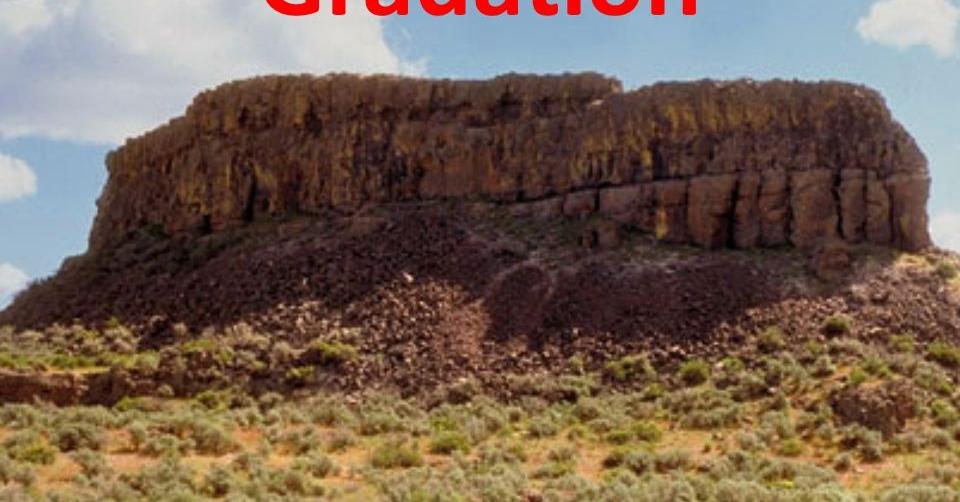Are you curious to know what is gradation in geography? You have come to the right place as I am going to tell you everything about gradation in geography in a very simple explanation. Without further discussion let’s begin to know what is gradation in geography?
Geography, the study of Earth’s physical features and the processes that shape its surface, delves deep into the forces responsible for shaping our planet. One crucial concept within the field of geography is “gradation.” This term refers to the gradual changes and transitions that occur within the Earth’s physical environment. In this blog, we will explore the significance of gradation in geography, its various forms, and its role in understanding the dynamic nature of our planet.
What Is Gradation In Geography?
Gradation, in the context of geography, refers to the natural processes that gradually change and shape the Earth’s surface over time. It encompasses a wide range of phenomena, including erosion, deposition, weathering, and transportation of Earth materials. These processes play a pivotal role in transforming the landscape and are responsible for the formation of landforms, the modification of topography, and the creation of geological features.
Key Aspects Of Gradation:
- Erosion: Erosion is a significant component of gradation. It involves the wearing away of the Earth’s surface due to natural forces such as wind, water, and ice. Erosion results in the removal of soil, rock, and sediment, leading to landscape changes.
- Deposition: Deposition is the opposite of erosion. It involves the settling and accumulation of eroded materials in a new location, often resulting in the formation of landforms like river deltas and alluvial plains.
- Weathering: Weathering is the breakdown of rocks and minerals on the Earth’s surface due to physical, chemical, or biological processes. It contributes to the gradual transformation of rock into sediment and soil.
- Transportation: The movement of eroded materials from one location to another is part of the gradation process. Water, wind, and glaciers are common agents of transportation.
Significance Of Gradation In Geography
- Landform Development: Gradation processes are responsible for the creation and evolution of various landforms, including mountains, valleys, river channels, and coastal features. Understanding gradation is essential to comprehend the Earth’s topography.
- Environmental Changes: Gradation influences the environment, as it can result in soil erosion, sediment deposition, and alterations in the ecological balance of regions.
- Human Impact: Human activities, such as construction, agriculture, and mining, often interact with gradation processes. Recognizing these interactions is vital for sustainable land use and resource management.
- Geological Timescales: Gradation processes occur over long geological timescales. By studying gradation, geographers and geologists gain insights into the Earth’s history and the formation of its features.
- Natural Hazard Assessment: Understanding gradation processes is crucial for assessing natural hazards such as landslides, flooding, and coastal erosion, which can have significant societal impacts.
Forms Of Gradation In Geography
- River Erosion and Deposition: Rivers are prominent agents of gradation, eroding materials from one location and depositing them in another. This process contributes to the formation of river valleys, deltas, and floodplains.
- Glacial Erosion: Glaciers are known for their powerful erosive capacity. They carve valleys, fjords, and moraines as they move and melt.
- Coastal Erosion and Deposition: Coastal gradation involves the eroding and depositing of materials along coastlines. It forms features like cliffs, beaches, and barrier islands.
- Wind Erosion: Wind can carry and deposit sand and dust, creating desert landscapes and sand dunes.
Conclusion
Gradation is a fundamental concept in geography that reveals the ever-changing nature of our planet. The processes of erosion, deposition, weathering, and transportation are the tools through which Earth’s surface is continually shaped and transformed. Understanding gradation is not only essential for appreciating the beauty and complexity of the Earth’s landscapes but also for addressing environmental challenges and promoting sustainable land use. It is through the study of gradation that geographers gain insights into the dynamic forces that have sculpted our world over geological time.
FAQ
What Is Gradation In Short Answer?
any process or change taking place through a series of stages, by degrees, or in a gradual manner. a stage, degree, or grade in such a series.
What Is Gradation Class 7?
Answer: The process of levelling of the surface of the Earth is known as gradation. This results from a range of factors like waves, glaciers and running water. These factors are cumulatively referred as agents of gradation.
What Is Gradation In Geography Class 6?
Gradation is the process of removing unevenness of the land surface and making it a level land. Agents of gradation are running water, wind, glacier, waves, and underground water. Gradation can be of two types- degradation and aggradation.
What Is Gradation For Class 10?
Gradation is the process of levelling the land by means of moving agents like rivers or wearing away and lowlands are raised by adding the eroded material by the process of deposition. This is because there id constant earth movement which raises mountains and winds seas and waves.
I Have Covered All The Following Queries And Topics In The Above Article
What Is Gradation In Geography Class 7
What Is Gradation In Geography In Hindi
What Is Gradation In Geography
What is gradation class 7



